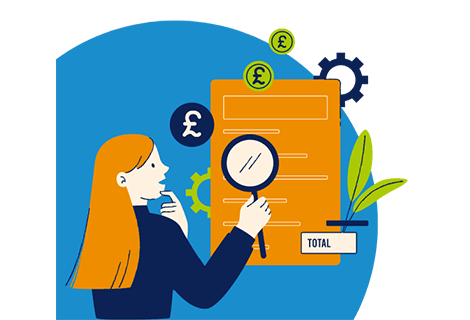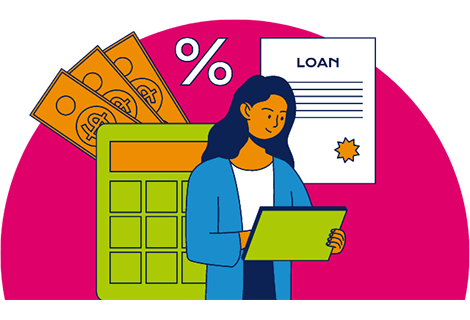
What is a second charge mortgage?
A second charge mortgage is a type of loan where you borrow money using your home as security. People often use it to pay off debt, make home improvements, or cover large expenses.
This loan sits alongside your main mortgage, but it doesn’t replace it, which is why people call it a "second charge." It’s also known as a "secured loan" or "homeowner loan."
Lenders are often more flexible with approval criteria for loans backed by your property. This means you may have a better chance of being accepted and may get more favourable terms than other personal loans.
However, if you’re using it to consolidate debt, be aware that you may end up paying over a longer term and could end up owing more in total.
Want to find out if you're eligible? Give us a call today or fill in our online enquiry form, and we'll help you explore your options!

When should you consider a second charge mortgage?
You might want to consider it if you need to raise extra funds and:
- You've been declined for other forms of finance, such as a further advance, remortgage, or unsecured loan.
- Remortgaging would trigger significant early repayment charges (ERCs).
- You’d lose a low rate on your current mortgage if you were to remortgage.
- Other financing options can’t provide the amount or terms you need.
In these scenarios, a second charge mortgage might offer the flexibility you need. With almost 40 years of experience, our team has helped many customers find the right solution for their needs. Take a look at our case studies to see how we’ve assisted others in similar situations.
Pros and cons of second charge mortgages
Like any loan, this option has both benefits and risks.
Pros:
- Larger loan amounts: You may be able to borrow more money than with other loan types. This can be helpful for big expenses like extensive home improvements.
- Easier approval: Since the loan is secured against your property, lenders may be more likely to approve your application, even if you have bad or poor credit.
- Flexible repayment terms: This solution can offer longer repayment periods, which can lower your monthly payments.
Cons:
- Risk of losing your home: If you do not keep up with payments, the lender can take your home. This is because the loan is secured against your property.
- Impact on your credit score: Missing or late payments can hurt your credit score, which can make it harder to get loans or other credit later.
- Higher overall cost: A longer repayment period can lower monthly payments. However, it may lead to paying more interest over the life of the loan.

What are second charge mortgage rates like?
Second charge interest rates can vary depending on several factors. These include the amount you wish to borrow, the length of the repayment term, the current market conditions, and your credit score.
Rates are available in both fixed and variable options. Fixed-rate mortgages keep your payments the same throughout the loan term, while variable rates can change, which means your payments could go up or down.
As a broker, we work with a wide range of lenders, giving us access to different mortgage products. When you contact us, we’ll take the time to understand your situation and try to help you find a solution with a competitive rate that works for you.

Why use a second charge mortgage broker?
When exploring your options, you have the choice to go directly to a lender or work with a broker. While the decision is ultimately yours, there may be some advantages to using a broker for your application:
- Expert guidance: A broker can take the work of finding a loan off your hands. With access to a panel of lenders, they know which ones are most likely to accept your application and which may not be a good fit. This knowledge may help you save time and avoid rejections.
- Simplifying the paperwork: Organising the necessary paperwork can be overwhelming, especially if it’s your first time applying. A broker will guide you through the process, explaining what documents you need to provide, what you need to sign, and when to do it.
- Saves time: Working with a broker may save you time. Instead of doing everything alone, a broker helps move your application along. They talk to the lender for you and make sure everything stays on schedule.
Using a broker can be helpful. However, they may charge extra fees for their services. These fees can be in addition to the costs from the lender. As a result, it could end up being more expensive than applying directly to a lender.
How do I apply for a second charge mortgage?
We want to make the process of applying as smooth as possible. Here are the main steps involved in our application process.
-

Step 1: Submit an enquiry
Fill out our enquiry form online or call us to speak directly to one of our advisors.
-

Step 2: Speak to the team
After reviewing your enquiry, one of our experts will call you to discuss your situation.
-

Step 3: We'll handle the rest
If we find you a product and you're happy, we'll take care of the rest for you.
-

Step 4: Completion
Once all of the paperwork is completed, you will receive your funds.





